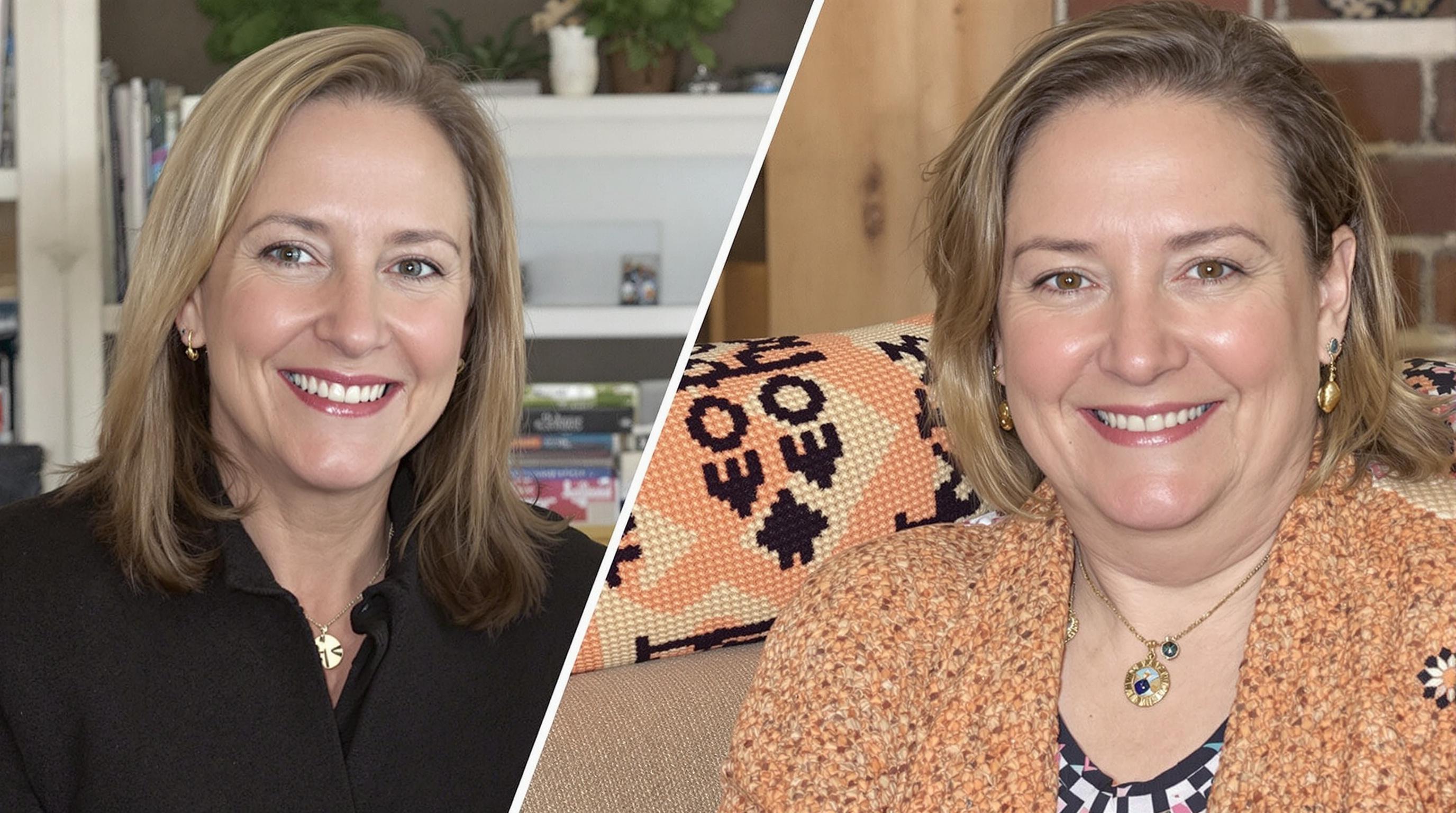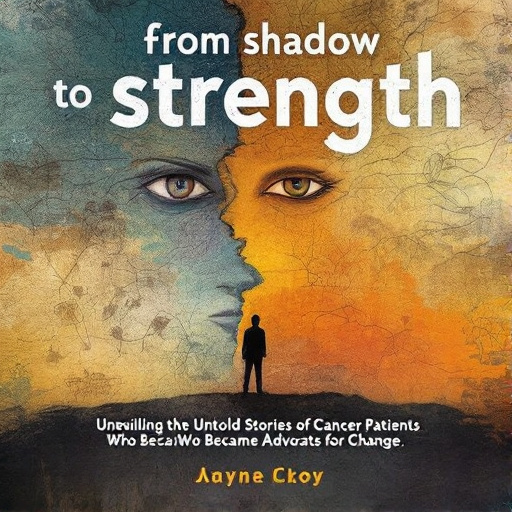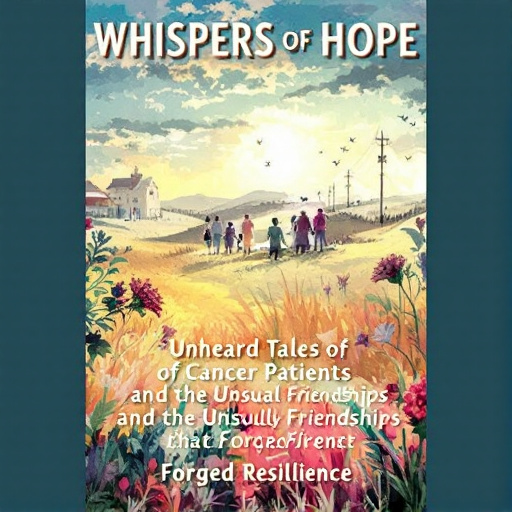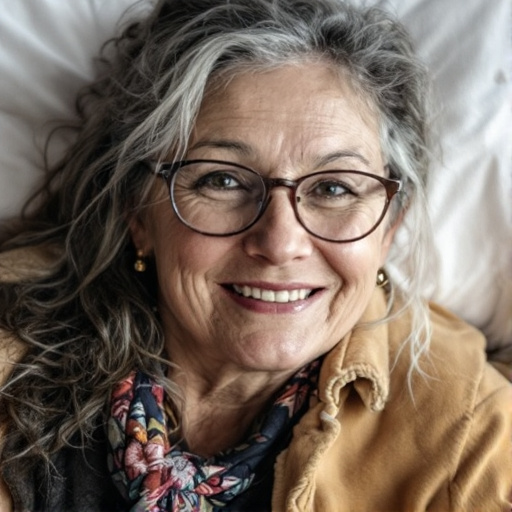Featured Articles
- 12 Pivotal Moments in Cancer Patients’ Lives That Shaped Unconventional Paths to Recovery
- Beyond the Diagnosis: The Unseen Impact of Cancer on Relationships and Social Dynamics
- Finding Light in the Shadows: Uncommon Spiritual Journeys of Cancer Survivors
- From Shadow to Strength: Unveiling the Untold Stories of Cancer Patients Who Became Advocates for Change
- Top 6 Wearable Tech Devices Revolutionizing Comfort and Support for Cancer Patients in Recent Years
Whispers of Hope: Unheard Tales of Cancer Patients and the Unusual Friendships that Forged Resilience
Whispers of Hope: Unheard Tales of Cancer Patients and the Unusual Friendships that Forged Resilience
In the heart of every cancer ward lies a tapestry of stories woven with threads of resilience, despair, laughter, and, most importantly, friendship. This article dives into the unheard tales of cancer patients and the unusual friendships that have blossomed amidst their battles, revealing how these connections illuminate the path to hope.
Seeds of Commonality
Imagine walking into a crowded hospital waiting room, where the hum of anxious conversations mingles with the sterile scent of antiseptic. Patients of varying ages and backgrounds sit together, often in silence, yet each is bound by a shared experience—cancer.
According to the American Cancer Society, there are about 18 million cancer survivors in the United States as of 2022, with an estimated 1.9 million new cancer cases diagnosed that same year (American Cancer Society, 2022). Behind those numbers are real people—individuals with stories, dreams, and often, unexpected friendships that form during treatments and hospital stays. These connections can become lifelines, lifting spirits and fostering resilience.
Storytelling: A Tale of Two Strangers
Let's delve into a poignant story. Meet Sarah, a 35-year-old mother who was recently diagnosed with breast cancer. After an emotionally and physically draining mastectomy, Sarah found herself seated next to an older gentleman, Mr. Thompson, during her first round of chemotherapy. He was 68, had been battling prostate cancer for years, and had an unexpectedly infectious sense of humor.
"You know, chemo is just another way of saying 'free time to read the books you put off for too long,'" Mr. Thompson announced with a wink, instantly breaking the ice. The two began to share stories about their lives—Sarah spoke of her young children, while Mr. Thompson recalled a culinary career that had taken him around the world. Their laughter and shared experiences became a cozy balm for the fear that encased them. They formed a friendship that would last long after their treatments ended.
A Study in Resilience
A study published in the Journal of Supportive Oncology indicated that cancer patients with strong social support systems had a significantly lower risk of mortality than those without (Bennett et al., 2020). This it turns out, isn't just anecdotal. Connection provides a buffer against the emotional upheaval brought forth by illness, enabling patients to cope better with their circumstances. Sarah and Mr. Thompson’s friendship exemplified this notion; they would often hold mini support groups during chemotherapy sessions, swapping jokes and sharing their fears as a way to navigate through the long hours.
Unlikely Allies in Recovery
Cancer treatment can be a lonely journey, but sometimes, the most unlikely place can foster the most profound friendships. Enter the story of Ben, a college student who befriended a fellow patient, Lucy—an elderly woman with a sharp wit and an insatiable appetite for adventure. The two met while attending a support group at their local clinic.
Though they were from vastly different generations, they found common ground in their love for classic rock music. Ben would often play songs from The Rolling Stones on his phone, leading Lucy to reminisce about her wild youth in the 1960s. Their friendship blossomed into an impromptu rock band of sorts, with Ben strumming his guitar and Lucy belting out lyrics, turning infusions into mini concerts—a delightful escape from reality.
Humor: The Best Medicine
There’s an adage that laughter is the best medicine, and it seems this rings true in the lives of many cancer patients. One study explored humor's psychosocial benefits, revealing it not only distracted patients from their pain but also helped reduce stress and inflammation (Bennett et al., 2018). With that in mind, Ben and Lucy often concocted absurdly funny scenarios about their doctors, dubbing them “The Rockn’Roll Specialists” who could heal their ailments with euphoric tunes.
In this space of camaraderie, not only does laughter provide a brief reprieve, but it also creates bonds. Their evenings filled with song and humor became a cherished ritual, empowering each other to face their uncertainties with buoyancy, reminding each other of life beyond the confines of the hospital walls.
The Role of Support Groups
Support groups are not merely rooms filled with grieving individuals; they serve as the breeding grounds for friendship and collective resilience. A comprehensive study showcased that participation in support groups increased a patient's perceived quality of life and emotional well-being (Simpson et al., 2019). These gatherings foster a shared understanding, allowing patients to communicate their fears and triumphs openly.
At a group meeting, one participant shared her frustrations about missing her daughter's wedding due to chemotherapy. Instantly, another patient chimed in, recounting how she had managed to attend her own son's wedding while on treatment. Before long, the room was bursting with stories of ingeniously sneaking, what felt like ordinary, moments of joy into dark times. In these moments, friendships were born—seeds of shared pain blossoming into flowers of empathy and support.
Lessons from Unusual Friendships
So, what do we learn from these vulnerable exchanges? For starters, camaraderie in the face of adversity can redefine the journey of illness. Friendships born out of necessity often take on incredible depth, providing solace in moments of despair. In fact, according to a recent survey by the Cancer Support Community, 78% of members stated that their friendships helped them cope with their diagnosis (Cancer Support Community, 2021).
The Ripple Effect of Connection
Connection doesn't just end with friendship; it creates a ripple effect that extends beyond the cancer ward. For instance, Sarah and Mr. Thompson decided to write a blog together detailing their hospital experiences and the importance of friendships in the healing process. It became a platform not only for sharing their journeys but also for helping others find their voices and connections amid struggles.
Through their narratives, they inspired countless others, encouraging patients to reach out, share, and forge their own alliances—a testimony that even in the darkest moments, humans shine the brightest in unity.
Stories of Hope in Adversity
In our journey through the tales of Sarah, Mr. Thompson, Ben, and Lucy, we capture not only the seriousness of illness but the lightness of shared laughter and mutual support. Each story speaks to the heart, illustrating that there’s strength in numbers and that trust, compassion, and humor can intercede when the weight of the world feels insurmountable. These friendships breathe life into the notion that together, we can weather the storm—and emerge laughing.
Words from the Young
As a recently turned 22-year-old writer, it’s awe-inspiring to explore the depth of human relationships amidst such trials. The power of a friend’s shoulder to lean on or an unexpected laughter shared with a stranger is a beautiful testament—as illuminated by the experiences of those who walk this complicated journey. It showcases the beauty of the human spirit and how healing comes in many forms.
Final Thoughts
In conclusion, the tales of unusual friendships among cancer patients are heartwarming reminders of our innate need for connection. As we hold space for these stories, we learn the value of resilience cultivated through shared experiences, laughter, and mutual support. Whether it’s the smile exchanged during an appointment or the heartfelt toasts at a wedding, it's these whispers of hope that amplify the human spirit's resolve against adversity. So, the next time you find yourself in a waiting room, reach out or share a giggle—because you never know what friendships may bloom that will inspire strength in the face of life's challenges.




